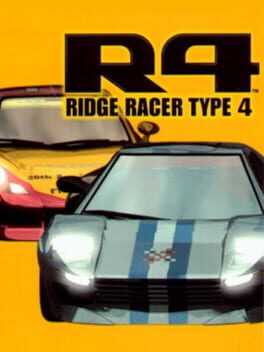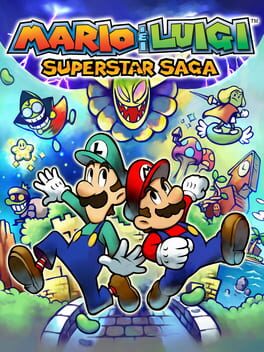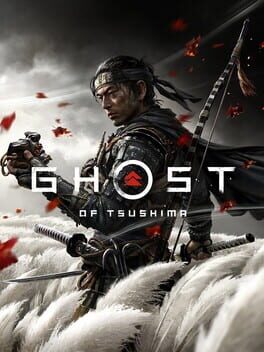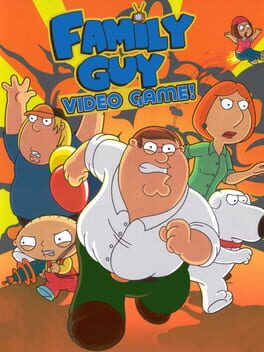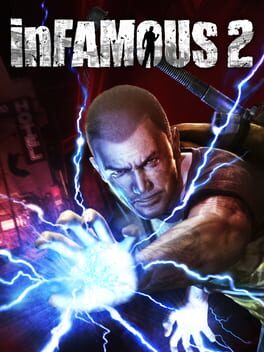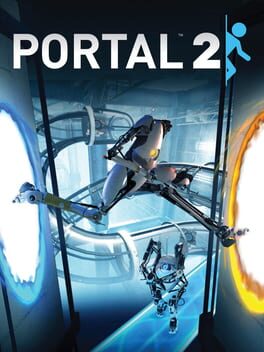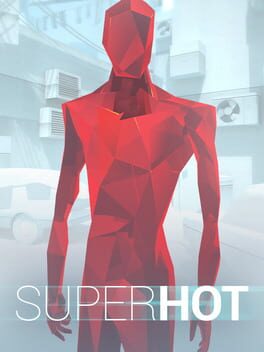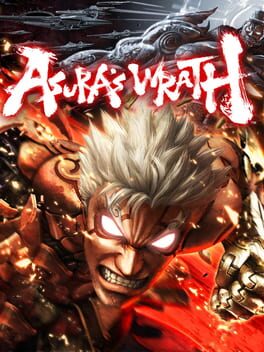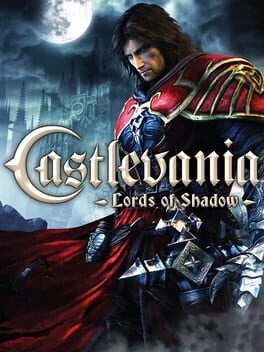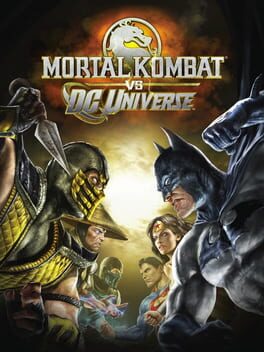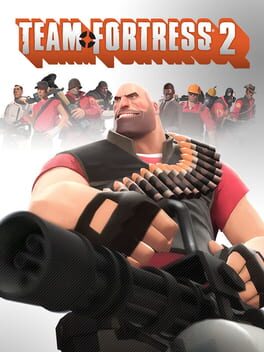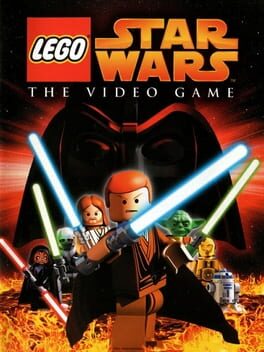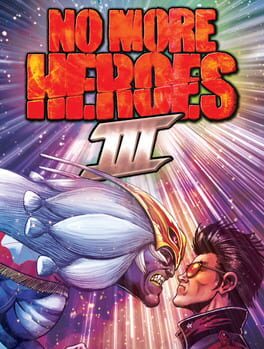MultiGenre
BACKER
1998
2020
Sony has had their fair share of open-world titles, to varying success. More often than not, they fall under traditional open world cliches most prominently set in stone by the likes of Far Cry 3; where some open world games like Dark Souls or Wind Waker prioritize exploration, other open world games like inFamous Second Son or Marvel's Spider-Man are more about finding collectables and liberating enemy camps - both of which to clear the map and add towards a 100% completion goal. Ghost of Tsushima, at first glance, tries to have it both ways.
One thing I initially liked a lot about this game is that there is no clear way to clear the map or where the collectables are - you must let the wind guide you. At first, it’s awesome just being led around this gorgeous world and finding its hidden secrets naturally. It feels like a real place with lots of hidden depth that I, Jin Sakai, am really exploring. Quickly, though, this pretty facade falls apart.
There's little in the way of actual exploration in this game. More often than not, the most efficient way of finding something is choosing from a menu what you want to find and then spamming the windpoint in the direction of level-ups. Rarely will something surprise you in this game without you directly asking to see it.
It really is a shame, too, BECAUSE the game looks so good. this game has been praised to no end about its environmental visuals, and it truly is something to praise, even for its mechanical purpose. Trees and grass swaying in the direction of the guiding wind looked and felt incredible, and in some story missions that didn’t have clear guidance there was usually a nearby fire blowing in the direction of progress.
And those visuals hold up in the combat and enemy animations, typically with very obvious telegraphs that were consistent but varied enough to sometimes catch me off-guard. Combat as a whole generally felt very good, minus some moments where I couldn’t parry out of a combo-ender. The only real problem is its variety.
Taking this game as just its linear missions and campaign, it’s quite short. Only about 24 missions in all, most with a very strong focus on combat. Problem is, new enemy types only appear per Act (of which there are three) and even then, there are only really about 5 to speak of. That may seem like plenty for a short game, but any variation they get is typically just more health or at worst, forcing certain strategies like dodging instead of letting the player parry (which seems like a decent mix-up, but functionally it’s an identical system, both even have the same upgrade that lets you get extra damage off if you do it at the last second.)
That wouldn’t be a problem if the player had a wide variety of options to handle opponents with, but you don’t. Parry, dodge and guard break is your lot as far as base samurai combat goes. There are also ghost weapons that usually function more as wide, enemy-clearing bombs or one-shot insta-kills like the kunai or bow, but more often than not I would just use them to eliminate the more annoying enemy types like brutes so that parrying the other guys would be more enjoyable. I guess this could be construed as a good thing, but as it stands they feel like more and more ways to make your character overpowered than making combat more interesting to engage with.
Duels are awesome though.
I have a lot of nits to pick with this game, but I do want to stress that it is a very enjoyable experience. Combat is viscerally satisfying, but lacking in the kind of mechanical depth that'll keep me coming back to it. Exploration is gorgeous, but still sometimes feels more like chasing waypoints than truly partaking in a world. I didn’t touch on it, but the story can occasionally be powerful and well-written, though often doesn’t dedicate enough to its themes of honor and tradition to make anything truly special, perhaps barring the ending.
A lot of this game is good, sometimes even great, but it's not confident enough in itself to really thrive.
One thing I initially liked a lot about this game is that there is no clear way to clear the map or where the collectables are - you must let the wind guide you. At first, it’s awesome just being led around this gorgeous world and finding its hidden secrets naturally. It feels like a real place with lots of hidden depth that I, Jin Sakai, am really exploring. Quickly, though, this pretty facade falls apart.
There's little in the way of actual exploration in this game. More often than not, the most efficient way of finding something is choosing from a menu what you want to find and then spamming the windpoint in the direction of level-ups. Rarely will something surprise you in this game without you directly asking to see it.
It really is a shame, too, BECAUSE the game looks so good. this game has been praised to no end about its environmental visuals, and it truly is something to praise, even for its mechanical purpose. Trees and grass swaying in the direction of the guiding wind looked and felt incredible, and in some story missions that didn’t have clear guidance there was usually a nearby fire blowing in the direction of progress.
And those visuals hold up in the combat and enemy animations, typically with very obvious telegraphs that were consistent but varied enough to sometimes catch me off-guard. Combat as a whole generally felt very good, minus some moments where I couldn’t parry out of a combo-ender. The only real problem is its variety.
Taking this game as just its linear missions and campaign, it’s quite short. Only about 24 missions in all, most with a very strong focus on combat. Problem is, new enemy types only appear per Act (of which there are three) and even then, there are only really about 5 to speak of. That may seem like plenty for a short game, but any variation they get is typically just more health or at worst, forcing certain strategies like dodging instead of letting the player parry (which seems like a decent mix-up, but functionally it’s an identical system, both even have the same upgrade that lets you get extra damage off if you do it at the last second.)
That wouldn’t be a problem if the player had a wide variety of options to handle opponents with, but you don’t. Parry, dodge and guard break is your lot as far as base samurai combat goes. There are also ghost weapons that usually function more as wide, enemy-clearing bombs or one-shot insta-kills like the kunai or bow, but more often than not I would just use them to eliminate the more annoying enemy types like brutes so that parrying the other guys would be more enjoyable. I guess this could be construed as a good thing, but as it stands they feel like more and more ways to make your character overpowered than making combat more interesting to engage with.
Duels are awesome though.
I have a lot of nits to pick with this game, but I do want to stress that it is a very enjoyable experience. Combat is viscerally satisfying, but lacking in the kind of mechanical depth that'll keep me coming back to it. Exploration is gorgeous, but still sometimes feels more like chasing waypoints than truly partaking in a world. I didn’t touch on it, but the story can occasionally be powerful and well-written, though often doesn’t dedicate enough to its themes of honor and tradition to make anything truly special, perhaps barring the ending.
A lot of this game is good, sometimes even great, but it's not confident enough in itself to really thrive.
There comes a time in every man's life where at some point, his hope for the future fades. Everyone on this dying planet wilts; turns into a cynic. He fears for his grandchildren in this day and age, remembering how the good times have come and gone and will die with them. It feels like all is lost, until they find something that gives them that same hope. Some find art. Some find culture. I found Family Guy Video Game.
People will always have their opinions on the value of art in the real world, and I feel as if Family Guy Video Game is the definitive proof that not only do games deserve to be art, but they deserve to be heralded as the future. In this modernistic society of blaming our problems on the media poisoning our children, I think we as adults need to step back to look closer and understand the media we consume. I believe Family Guy Video Game to be a perfect starting point.
Down to the opening cutscene. Peter Griffin (voiced by the endlessly talented Seth MacFarlane) is sitting in his garage watching a televised broadcast of the Mr. Belvedere show, specifically the episode where the aforementioned Mr. Belvedere sits on his own nuts. Brian comes in and criticizes Peter's taste in television, only for him to be shushed and ignored. I think this speaks volumes about our society.
It says something about how selective our memories are. How the modern American can sit idly by and laugh at the pain of others on television, but children innocently playing their video games bought by their responsible parents will be unfairly ridiculed and shamed for partaking in something they had no choice in. They only grew up with it, same as Peter with television. It's a repetitive cycle, and one we may never learn from due to our own cynicism.
Also, at one point, Stewie Griffin (voiced by the endlessly talented Seth MacFarlane) steps on people's butts. That was pretty funny
People will always have their opinions on the value of art in the real world, and I feel as if Family Guy Video Game is the definitive proof that not only do games deserve to be art, but they deserve to be heralded as the future. In this modernistic society of blaming our problems on the media poisoning our children, I think we as adults need to step back to look closer and understand the media we consume. I believe Family Guy Video Game to be a perfect starting point.
Down to the opening cutscene. Peter Griffin (voiced by the endlessly talented Seth MacFarlane) is sitting in his garage watching a televised broadcast of the Mr. Belvedere show, specifically the episode where the aforementioned Mr. Belvedere sits on his own nuts. Brian comes in and criticizes Peter's taste in television, only for him to be shushed and ignored. I think this speaks volumes about our society.
It says something about how selective our memories are. How the modern American can sit idly by and laugh at the pain of others on television, but children innocently playing their video games bought by their responsible parents will be unfairly ridiculed and shamed for partaking in something they had no choice in. They only grew up with it, same as Peter with television. It's a repetitive cycle, and one we may never learn from due to our own cynicism.
Also, at one point, Stewie Griffin (voiced by the endlessly talented Seth MacFarlane) steps on people's butts. That was pretty funny
2011
2011
beautiful story about robots dealing emotionally with surrogate parents
like many of you im sure, ive played this game a couple hundred times. im logging it only now because there was a long stretch of time where i just didnt replay it until now, and wanted to see if my opinions still held up.
they did. for a sequel to Portal, one of the most critically acclaimed and iconic puzzle games of all time, there is a distinct lack of puzzles in this game. it could be classified more as a cinematic platformer visual novel than anything else. there is an absurd amount of time in this game spent walking around decrepit environments with the puzzle being what bit of wall to shoot a gun at in order to progress.
despite that taking up what feels like a majority of the playtime however, when it does decide to be a puzzle game it can stand toe to toe with its older brother, possibly even outmatch it at times. there were several puzzles that stumped me, and they all hold they same ideal the first game has that once a puzzle is solved it should take almost no time at all to go through with the solution - something that inherently feels immediately satisfying and something that makes the first game so easy to go back to. even when its not being a satisfying puzzle game - something it clearly can be, just isnt all the time for some reason - it does have its shining moments. particularly, the writing.
i once heard this game described as a competition between three writers to create the best character ever, and it ended in a tie. Wheatley, GladOS, and Cave Johnson are all so charming, cleverly written, and fantastically voice-acted that listening to them is a reward in itself. Wheatley as an antagonist is serviceable for what is demanded of him and Cave Johnson is only in a small portion, but its how they tie into GladOS that makes them special. Her sharing the main character role with Chell fills the gap of a silent protagonist which the first game didnt need to worry about like this does and lets the writing really glow when Wheatley or Cave Johnson speak to her indirectly and open up more about her character. i could just write "the cave johnson part" for this review but then i'd have to give it a perfect 5/5
it is a truly great game, for sure, and there are some glimpses of pure perfection, but there just is not enough game in this game for it to stand as one of the best of all time for me.
also, not a single slice of cake in this game. god bless valve. may they rest in peace.
like many of you im sure, ive played this game a couple hundred times. im logging it only now because there was a long stretch of time where i just didnt replay it until now, and wanted to see if my opinions still held up.
they did. for a sequel to Portal, one of the most critically acclaimed and iconic puzzle games of all time, there is a distinct lack of puzzles in this game. it could be classified more as a cinematic platformer visual novel than anything else. there is an absurd amount of time in this game spent walking around decrepit environments with the puzzle being what bit of wall to shoot a gun at in order to progress.
despite that taking up what feels like a majority of the playtime however, when it does decide to be a puzzle game it can stand toe to toe with its older brother, possibly even outmatch it at times. there were several puzzles that stumped me, and they all hold they same ideal the first game has that once a puzzle is solved it should take almost no time at all to go through with the solution - something that inherently feels immediately satisfying and something that makes the first game so easy to go back to. even when its not being a satisfying puzzle game - something it clearly can be, just isnt all the time for some reason - it does have its shining moments. particularly, the writing.
i once heard this game described as a competition between three writers to create the best character ever, and it ended in a tie. Wheatley, GladOS, and Cave Johnson are all so charming, cleverly written, and fantastically voice-acted that listening to them is a reward in itself. Wheatley as an antagonist is serviceable for what is demanded of him and Cave Johnson is only in a small portion, but its how they tie into GladOS that makes them special. Her sharing the main character role with Chell fills the gap of a silent protagonist which the first game didnt need to worry about like this does and lets the writing really glow when Wheatley or Cave Johnson speak to her indirectly and open up more about her character. i could just write "the cave johnson part" for this review but then i'd have to give it a perfect 5/5
it is a truly great game, for sure, and there are some glimpses of pure perfection, but there just is not enough game in this game for it to stand as one of the best of all time for me.
also, not a single slice of cake in this game. god bless valve. may they rest in peace.
2016
KINDAWARM
i heard a lot about this game going into it and how the gimmick is super cool, and yeah it is, but the finished product feels near identical to the demo they released all those years ago.
my biggest gripe is that despite being about doing cool shit with the freedom of time youre allowed, the game strongly incentivizes waiting in a corner and shooting people as they come through in a single-file line. once you get halfway through this game's 2 hour campaign, the story (which is very bad) starts taking control and the gameplay (which is very samey) continues it's path of throwing more guys at you and essentially saying "hey, stop having fun. you cant win that way"
its good, and certainly worth a try, but im very disappointed by it
i heard a lot about this game going into it and how the gimmick is super cool, and yeah it is, but the finished product feels near identical to the demo they released all those years ago.
my biggest gripe is that despite being about doing cool shit with the freedom of time youre allowed, the game strongly incentivizes waiting in a corner and shooting people as they come through in a single-file line. once you get halfway through this game's 2 hour campaign, the story (which is very bad) starts taking control and the gameplay (which is very samey) continues it's path of throwing more guys at you and essentially saying "hey, stop having fun. you cant win that way"
its good, and certainly worth a try, but im very disappointed by it
2006
2012
2007
kind of hard to rate, but despite its huge following i feel like this game still isnt appreciated enough. sure its an online shooter but not only is it an innovater of its own genre, but its an excellent piece of art in its own right.
the gameplay has been analyzed up and down by much more eloquent than i, but the art design is iconic, the sound design is phenomenal, and it was written when valve was at the top of their game (meaning it was dry, witty, hilarious, and generally incredible)
and the voice acting. god damn. the voice acting elevates this game to another level. from Grant Goodeve's work as the laid-back Engineer, John Patrick Lowrie as the respectful Australian Sniper, Gary Schwartz for his iconic yells, and of course the late but still great Rick May for his performance as the ever-wonderful Soldier. god bless all these men for their work on an iconic, game-changing work of art that will forever be in the hearts of so many people.
the gameplay has been analyzed up and down by much more eloquent than i, but the art design is iconic, the sound design is phenomenal, and it was written when valve was at the top of their game (meaning it was dry, witty, hilarious, and generally incredible)
and the voice acting. god damn. the voice acting elevates this game to another level. from Grant Goodeve's work as the laid-back Engineer, John Patrick Lowrie as the respectful Australian Sniper, Gary Schwartz for his iconic yells, and of course the late but still great Rick May for his performance as the ever-wonderful Soldier. god bless all these men for their work on an iconic, game-changing work of art that will forever be in the hearts of so many people.
i truly have no idea why i or anyone else even likes these games
the puzzles can be solved in seconds, combat has the depth of hitting the attack button until it stops, platforming has the same depth as the very first crash bandicoot, etc.
it really boils down to how satisfying it is to pick up studs and fill out a character roster. thats the main draw to these games and its fun as hell i have no idea why is this even a good game do i even like video games what even are video games
the puzzles can be solved in seconds, combat has the depth of hitting the attack button until it stops, platforming has the same depth as the very first crash bandicoot, etc.
it really boils down to how satisfying it is to pick up studs and fill out a character roster. thats the main draw to these games and its fun as hell i have no idea why is this even a good game do i even like video games what even are video games
2021
this game is very complicated and my opinion of it only grows more nuanced the more i think about it, so its hard to pinpoint how exactly i feel about it. i can try though.
the following was my initial impressions.
"far from a bad game, but so afraid to truly confront its more mature themes that it relies too heavily on the wacky suda that only appeals to those unwilling to take him seriously as a writer. just as soon as they were done making wacky rainbow silly “oh, japan” funtime games, we come right back to it in fear of making another financial flounder. combat is satisfying, but lacks depth with cooldown-based attacks and purpose without standard levels. the open world returns, but is segmented and barren, feeling like even more of a waste than the first game’s. the bosses seem cool at first, but are often too easy and lacking any significant purpose in the story. this game leans heavily on its themes of “kill the past,” but frequently undermines itself for the lulz or takashi miike. this game is suda at his most insecure, and im disappointed by his inability to give any of these characters a meaningful sendoff. i give it an awesomesauce out of thanos"
but now, i think ive come to appreciate it a little more. i think the blatancy in its absurdity and lack of introspection from TSA is completely intentional. after all, what is left to introspect on after TSA? travis, alongside Suda and ourselves, has become who he is. he's run from his past long enough and now he is - literally - living with it, comfortably and happily. Santa Destroy is entirely different, almost unrecognizable, but its still his home. that is, until FU arrives.
a petulant and spoiled child, seeking to cause havoc purely for the sake of recognition and prestige; killing for cool points. FU serves as a perfect foil to travis because he is what travis used to be, a child with a desensitized view of killing. unlike the travis we have now, FU has not been forced to introspect on himself and persists to try and kill travis out of anger and revenge, a fool's game that travis is equally familiar with. just as FU represents travis's past that he must kill if i may be so bold as to say, travis represents FU's future, one that he is deathly afraid of no matter how much he tries to pretend he isnt.
i could talk for ages about the dichotomy between travis and fu, but its complicated. everything about this game is. ive grown on its story more but that does NOT make it without flaws. its issues with structure and bosses are still there, the lack of levels is still disappointing and all the bosses still lack very good characterization. the bosses may be intentional, the levels most certainly are not.
i dunno man. this game is complicated. but i think it might be really special.
the following was my initial impressions.
"far from a bad game, but so afraid to truly confront its more mature themes that it relies too heavily on the wacky suda that only appeals to those unwilling to take him seriously as a writer. just as soon as they were done making wacky rainbow silly “oh, japan” funtime games, we come right back to it in fear of making another financial flounder. combat is satisfying, but lacks depth with cooldown-based attacks and purpose without standard levels. the open world returns, but is segmented and barren, feeling like even more of a waste than the first game’s. the bosses seem cool at first, but are often too easy and lacking any significant purpose in the story. this game leans heavily on its themes of “kill the past,” but frequently undermines itself for the lulz or takashi miike. this game is suda at his most insecure, and im disappointed by his inability to give any of these characters a meaningful sendoff. i give it an awesomesauce out of thanos"
but now, i think ive come to appreciate it a little more. i think the blatancy in its absurdity and lack of introspection from TSA is completely intentional. after all, what is left to introspect on after TSA? travis, alongside Suda and ourselves, has become who he is. he's run from his past long enough and now he is - literally - living with it, comfortably and happily. Santa Destroy is entirely different, almost unrecognizable, but its still his home. that is, until FU arrives.
a petulant and spoiled child, seeking to cause havoc purely for the sake of recognition and prestige; killing for cool points. FU serves as a perfect foil to travis because he is what travis used to be, a child with a desensitized view of killing. unlike the travis we have now, FU has not been forced to introspect on himself and persists to try and kill travis out of anger and revenge, a fool's game that travis is equally familiar with. just as FU represents travis's past that he must kill if i may be so bold as to say, travis represents FU's future, one that he is deathly afraid of no matter how much he tries to pretend he isnt.
i could talk for ages about the dichotomy between travis and fu, but its complicated. everything about this game is. ive grown on its story more but that does NOT make it without flaws. its issues with structure and bosses are still there, the lack of levels is still disappointing and all the bosses still lack very good characterization. the bosses may be intentional, the levels most certainly are not.
i dunno man. this game is complicated. but i think it might be really special.
